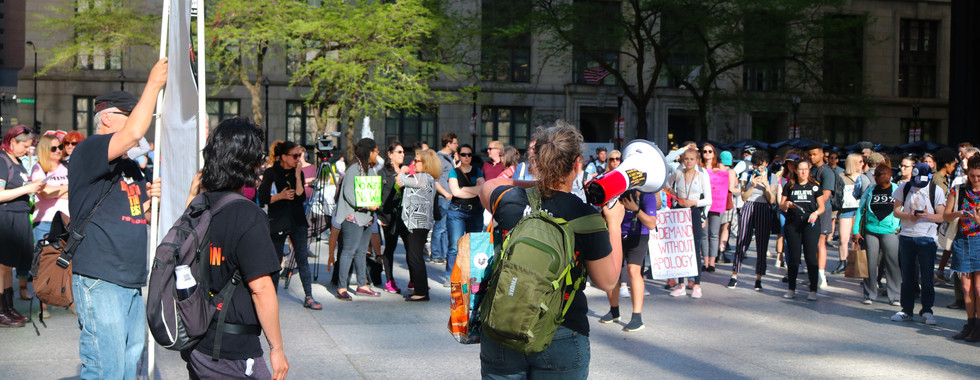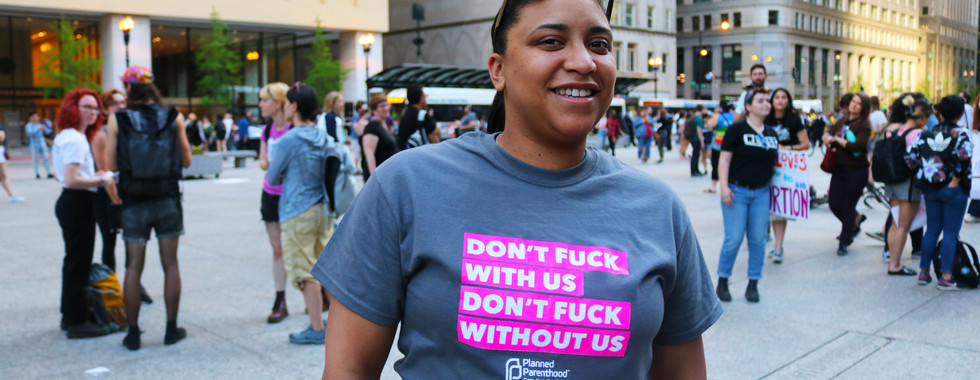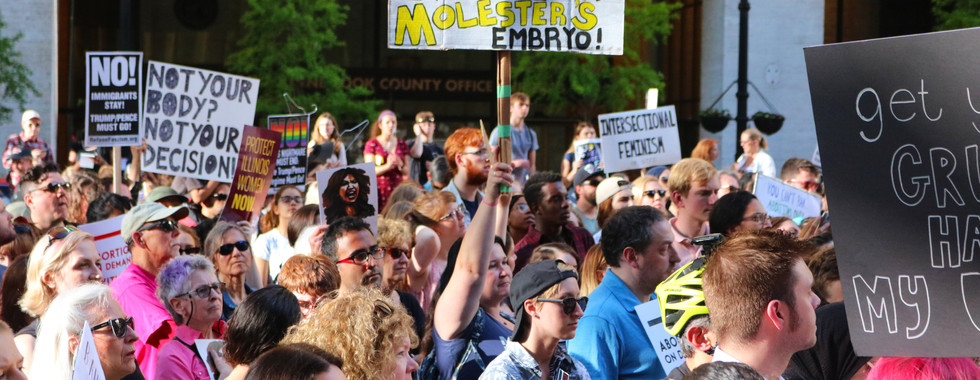Protesters Occupy Streets of Chicago in Support of Reproductive Justice
- Megann Horstead

- Oct 12, 2020
- 3 min read
There was chanting, singing and solidarity setting the scene at Thursday’s Chicago Rally for Reproductive Justice.
The demonstration took place amid national-level controversy over the presentation of stricter legislation aimed at banning abortions in several states in the South and Midwest.
For years, the abortion divide has been subject to debate across nation.
During the rally, several speakers were featured from Chicago Abortion Fund, Midwest Access Coalition, Lifted Voices, National Asian Pacific American Women’s Forum and more.
Emboldened by the bans, protesters came out by the dozens in support of reproductive justice.
Chicago Resident Tommorrow Snyder believes, like many of the supporters of the rally, a woman’s body is a woman’s choice.
“I’ve had an abortion, and then went on and had a child,” she said. “Both times were my decision. When I felt like I was ready to become a mother, I was. Now, I have an awesome teenager. When I wasn’t ready to become a mother, I made the choice not to. It was lovely because I was able to make that choice for myself.”
Chicago resident Aranda Stathers questioned what’s next if steps are taken to make abortions illegal—the after pill, birth control?
“This is a really, really slippery slope that could take over, and that’s really scary for me,” she said.
Several at the rally said it appears the abortion divide is all about Roe v. Wade, the landmark Supreme Court decision of 1973 that protects a woman’s right to choose.
Snyder said the national news coverage of the abortion divide is lacking “because they’re only covering the one side of it, which is mainly the GOP side of it.”
Stathers shared that view, saying misinformation is another issue.
“It’s conflicting because there’s so much false information going out about the law, itself, particularly in Alabama,” she said. “For a long time, people didn’t know, or still don’t know, who’s getting this quote, ’99 years in prison, who’s getting this felony.’ People are being told the doctors are being punished, but it’s not. It’s the people who are having the abortion, as well, as the doctor.”
Stathers said she would like to know more specifically how people in Alabama are affected by the abortion ban.
Chicago resident Julie Lynn, who works for Planned Parent of Illinois, said she is a strong advocate and supporter of reproductive justice work.
“I think it’s important that people are coming out to support everyone in this movement, whether they’re looking for abortion fund information, abortion access, or comprehensive reproductive health care overall,” she said. “We all need to make sure we’re locking arms and standing together in this fight and making sure we continue to have bodily autonomy.”
Lynn believes the abortion bans criminalize women and certain populations.
“I think there is no medical procedure as stigmatized and shamed as abortion,” she said. “I’m not sure why abortion is the target for so many, but I can make the assumption that it is a long plan to control women’s bodies and to control women’s lives. Nobody can make those decisions except for a person who is pregnant and their doctor.”
Chicago Resident Hannah Doruelo said she was motivated to come out in protest.
“I definitely have friends who’ve had abortions,” she said. “It feels personal because it’s laws being made about my body, the body that I have. If there ever comes a time where I would need an abortion, I would hope it’s safe for me to do so and affordable.”
Doruelo, who has a sister working as an obstetrician-gynecologist, she said she understands the concerns people may raise when they’re going through a pregnancy.
“I hear about her experiences in the delivery room,” she said. “It’s such an intimate and oftentimes traumatic space, especially for young folks who are receiving that health care.”
Doruelo takes issue with the way national news outlets are covering the abortion divide.
“It’s frustrating because I think it centers the conversation solely on abortion when, I think, as the speakers pointed out today, we need to broaden our understanding of what reproductive justice means,” she said. “If we only are focused on abortion, then we obscure the other necessary fights for freedom.”
Doruelo wants more public discourse on what it means to have safe abortions that are language accessible and geographically accessible.
“I feel it’s always people are on the defensive, as opposed to being able to talk together about how we can build a safer, healthier communities,” she said.
The rally drew some counter protest with demonstrators taking to the streets to make their views known.
None of the abortion bans this year have taken effect.
Supporters of the stricter legislation are hoping the matter goes before the U.S. Supreme Court for a decision.
It remains unclear if the abortion bans will become a reality.































Comments